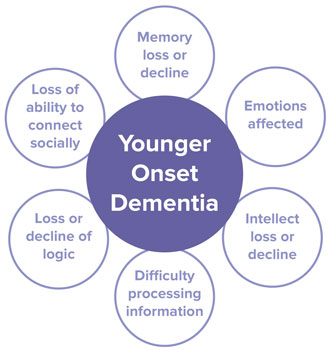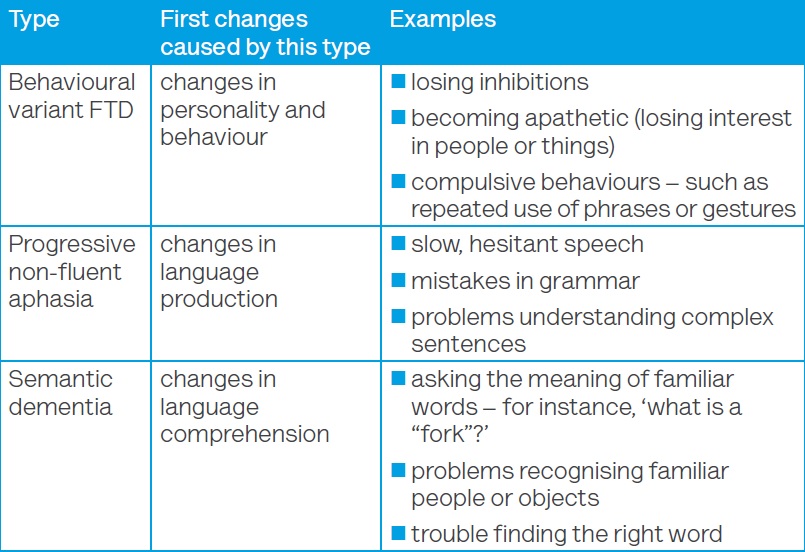The Value of Early Detection and Diagnosis in Dementia Instances
When it comes to mental deterioration, identifying the indications early can make a substantial distinction. Understanding the subtleties of dementia can assist you determine symptoms faster.
Understanding Dementia: Types and Signs

Common signs and symptoms consist of memory loss, trouble with interaction, and changes in mood or habits. You could discover someone having problem with acquainted jobs or coming to be confused regarding time and location. Do not think twice to seek help if you see these indications in on your own or an enjoyed one. Early recognition of dementia signs can substantially boost the overall administration of the condition, making it essential to stay notified. When required., understanding these distinctions encourages you to act promptly and successfully.
The Influence of Very Early Diagnosis on Therapy Choices
Recognizing the indications of dementia early on can noticeably influence the treatment alternatives available. When you seek a medical diagnosis immediately, you open the door to a range of treatments that can slow down the condition's development.
Additionally, early diagnosis allows you to discover non-pharmaceutical techniques, such as cognitive treatments and way of life changes, that can boost cognitive feature. You'll have the opportunity to create an individualized care plan that resolves your details needs and choices. This proactive technique not just encourages you yet additionally helps in managing potential coexisting conditions. Keep in mind, the earlier you act, the more options you'll need to maintain your lifestyle and self-reliance for as lengthy as possible.
How Very Early Discovery Can Enhance Lifestyle
Very early detection of dementia not only opens therapy options but likewise significantly boosts your lifestyle. When you identify signs and symptoms early, you can start to manage them effectively, permitting you to preserve a feeling of independence and control over your daily tasks. Early medical diagnosis implies you can access therapies and way of living modifications customized to your demands, assisting you deal with difficulties in an extra organized way.
Additionally, understanding your problem encourages you to make enlightened choices about your future. You can prepare for the modifications ahead, ensuring that your personal goals and choices are prioritized. This aggressive method fosters a sense of safety, decreasing anxiousness for both you and your liked ones.
Furthermore, involving in early treatments may enhance your cognitive feature and emotional wellness, allowing you to enjoy purposeful connections and experiences. In brief, early detection isn't just regarding taking care of symptoms; it has to do with enriching your life.
The Duty of Family and Caregivers in Very Early Recognition

By sharing your issues, you aid initiate early assessments, which can bring about timely medical diagnosis and treatment. In addition, your assistance can encourage liked ones to look for aid, decreasing preconception and fear connected with mental deterioration.
Moreover, keeping open lines of communication within the household promotes an encouraging atmosphere. Frontotemporal Dementia. Your positive involvement not just aids in determining the concern yet also assists in preparing for future treatment, guaranteeing that your loved one obtains the best possible support as their needs develop
Typical Mistaken Beliefs Concerning Mental Deterioration
Household participants and caregivers commonly deal with difficulties not just in identifying signs of mental deterioration but likewise in going across the misconceptions bordering the problem. One common mistaken belief is that mental deterioration only impacts the elderly. While age is a substantial threat aspect, younger individuals can additionally develop dementia. Another misconception is that dementia is a typical part of aging. It's important to identify that while amnesia can accompany age, it's not an unavoidable end result. Some individuals believe mental deterioration just influences memory, yet it can likewise affect reasoning, state of mind, and actions. Furthermore, numerous believe that as soon as detected, absolutely nothing can be done. Actually, early intervention can bring about better monitoring of signs. Some believe that all explanation kinds of dementia are the exact same. Each kind, such as Alzheimer's or vascular dementia, has special attributes and requires various methods to care. Understanding these misunderstandings is essential for efficient support.
Devices and Evaluations for Very Early Discovery
When it pertains to very early discovery of dementia, recognizing cognitive analyses and testing devices is necessary. These devices can help you determine prospective problems before they intensify. By acquainting on your own with these analyses, you can play an energetic duty in checking cognitive health.
Cognitive Assessments Overview
Cognitive assessments play a crucial role in the very early detection of mental deterioration, as they assist recognize refined changes in memory, assuming, and reasoning skills. Early recognition through these devices can lead to timely treatments, improving results and top quality of life. If you see any cognitive modifications, looking for out these evaluations can be a positive step towards understanding and handling your brain health and wellness efficiently.
Evaluating Tools Use
Making use of effective screening tools is necessary for the very early discovery of dementia, as they offer an organized technique to examining cognitive wellness. You can determine prospective problems before they escalate when you make use of these devices. Usual assessments, like the Mini-Mental State Assessment (MMSE) or the Montreal Cognitive Analysis (MoCA), assistance determine memory shortages and various other cognitive impairments. Normal screenings enable you to track adjustments with time, making it simpler to talk about problems with medical care carriers. By incorporating these devices into routine assessments, you equip yourself and your loved ones to seek timely treatments. Keep in mind, early detection can greatly influence treatment options and quality of life, so do not undervalue the power of proactive testing.
Steps to Take After a Medical Diagnosis: Preparation for the Future
After receiving a dementia medical diagnosis, it's necessary to begin preparing for the future. You'll wish to develop care strategies that suit your demands while likewise addressing economic and legal prep work. Taking these steps early can aid guarantee you and your loved ones really feel more safe and secure moving on.
Developing Care Strategies

Legal and Monetary Preparations
As you navigate your treatment strategy, it is essential to consider the lawful and economic facets of coping with dementia. Start by assigning a power of attorney to handle your monetary decisions if you're not able to do so. This ensures your dreams are valued and can ease the burden on your loved ones. Next off, take into consideration developing a living will certainly to detail your healthcare choices. Evaluation your insurance coverage and understand what's covered, particularly long-term care choices. It's additionally a good idea to speak with an economic planner knowledgeable about dementia-related problems. They can assist you manage your possessions and prepare for future expenses. Taking these aggressive actions can supply assurance and guarantee your needs are fulfilled as your problem advances.
Frequently Asked Questions
What Are the Threat Aspects for Developing Dementia?
You might face greater risks for establishing mental deterioration if you have a household background, cardiovascular concerns, diabetic issues, smoking practices, or low education degrees. Staying active emotionally and physically can aid minimize these threats substantially.
Can Lifestyle Adjustments Delay or avoid Mental deterioration?
Yes, making way of life modifications can help protect against or delay dementia. By staying active, consuming a balanced diet regimen, involving in social activities, and challenging your mind, you're improving your cognitive health and wellness and decreasing risk variables.
Exactly How Does Mental Deterioration Differ From Typical Aging?
Dementia entails cognitive decline that conflicts with day-to-day live, while regular aging commonly does not (Fall Risk). You might observe memory lapses as you age, however dementia symptoms, like complication and trouble with interaction, are a lot more extreme and turbulent
Are There Any Type Of Support Groups for Dementia Caregivers?
Yes, there are support system for mental deterioration caregivers. You can find neighborhood or on-line groups with organizations like the Alzheimer's Organization. Getting in touch with others in comparable circumstances can provide important emotional assistance and useful recommendations.
What Lawful Documents Should I Prepare After a Mental Deterioration Diagnosis?
After a dementia diagnosis, you ought to prepare crucial legal documents like a power of attorney, healthcare proxy, and living will. These aid assure your wishes are valued and offer assistance for future clinical and monetary decisions.
The Significance of Very Early Detection and Medical Diagnosis in Mental Deterioration Instances
Alzheimer's disease is the most common type, however you'll additionally come across vascular mental deterioration, Lewy body dementia, and frontotemporal dementia.When it comes to early discovery of dementia, comprehending cognitive assessments and testing tools is this website important.Cognitive analyses play a vital role in the very early detection of mental deterioration, as they assist recognize subtle changes in memory, believing, and thinking abilities.Using reliable screening tools is crucial for the early detection of mental deterioration, as they offer a structured technique to assessing cognitive wellness.